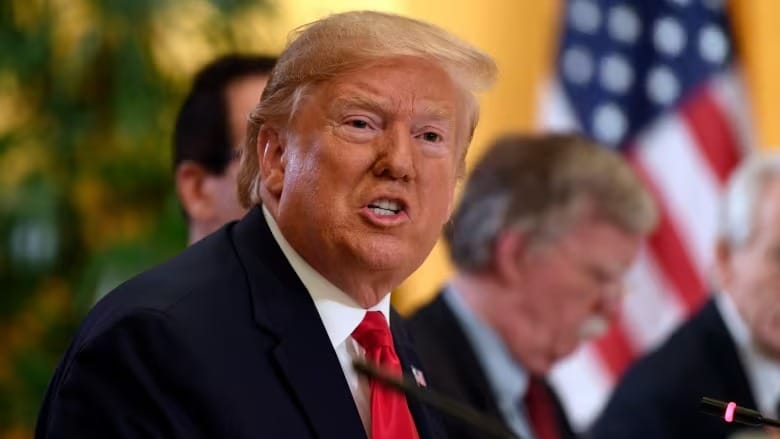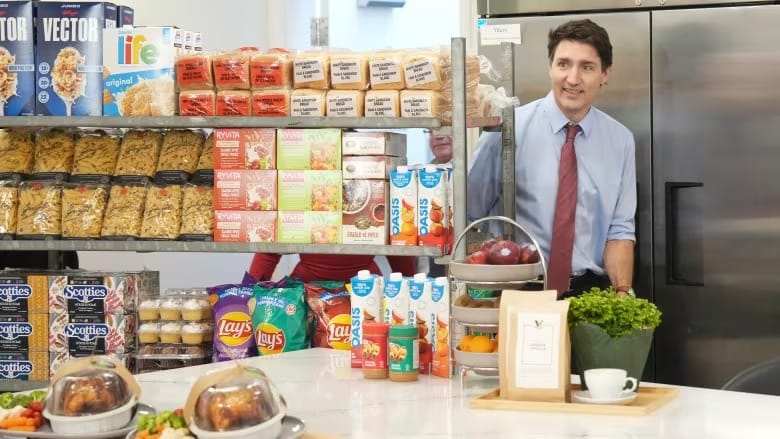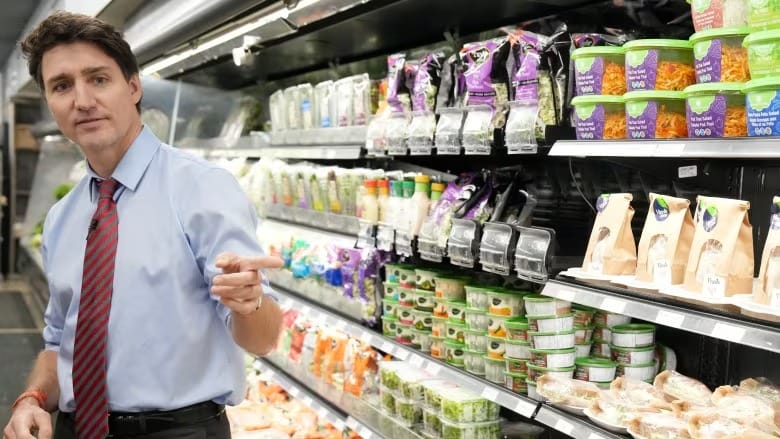Trump casts a long shadow as world leaders gather for APEC and G20 summits
U.S. president-elect will be top of mind, even though he won't be there

The prospect of Donald Trump's return to the White House is a key issue for world leaders gathering in Peru for the APEC summit and later in Brazil for the G20, marking some of the first international meetings since the U.S. election.
Prime Minister Justin Trudeau is expected to depart for the Asia-Pacific Economic Cooperation summit in Lima today, followed by the G20 summit in Rio de Janeiro, which begins on November 18.
While the agendas for these gatherings are planned well in advance, Trump’s recent win will inevitably influence the tone and substance of discussions.
"Of course, the election result changes what people are talking about," noted a senior Canadian government official who requested anonymity. "Especially on the sidelines and in informal conversations, leaders will exchange views on the U.S."
This time, global leaders have a more detailed understanding of Trump’s positions compared to his first term. "There’s a lot more intelligence now, so discussions will be based on more substance than during his initial administration," said Carlo Dade, director at the Canada West Foundation’s trade infrastructure center. "I would expect there will be a more informed context for conversations on how to respond."
The APEC summit, which includes 21 member nations, is a critical forum for economic discussions in the Asia-Pacific region. President-elect Trump's pledges to impose new tariffs cannot be ignored by these countries. "A lot of the APEC countries are targets," said Dade, noting that each country will be gauging its position on Trump’s "trade enemies list."
Canada’s recent Indo-Pacific strategy makes APEC vital for trade diversification. The summit provides an opportunity for nations to protect their market share against potential U.S. protectionism, though the temptation for each to prioritize its relationship with the U.S. is strong. "When the U.S. becomes unpredictable, other democracies—like Japan, Australia, and Canada—might look to cooperate more closely," said Vina Nadjibulla of the Asia Pacific Foundation of Canada. "But often, countries end up managing their U.S. ties bilaterally, trying to navigate the uncertainty alone."
The G20, which convenes the world’s 20 largest economies, presents an even greater challenge for cooperation among a diverse mix of allies and rivals. "The G20 is the biggest platform in international relations that unites such diverse major players," said the senior government official, highlighting both shared economic strength and profound disagreements within the group.
This year, Russia's President Vladimir Putin will not attend the G20, sparing Brazil from the diplomatic complexities of enforcing an international arrest warrant. However, leaders from countries with strained relations with Canada, including China’s Xi Jinping and India’s Narendra Modi, will be present at the G20, though no official meetings with Trudeau are anticipated.
Trudeau may have a brief informal or even a bilateral meeting with U.S. President Joe Biden, who will attend both summits. That meeting, however, could be more of a farewell than forward-looking, as Biden has supported several key initiatives led by APEC and G20 hosts, including Brazil’s G20 push for global poverty reduction and governance reform. It’s unclear if Trump would honor Biden’s commitments if elected.
"Biden and his G20 counterparts will want to push these goals forward while they still can," noted John Kirton, director of the G20 Research Group at the University of Toronto. "They’re aware their timeline may be limited to two months."
Although primarily focused on trade and economics, the G20 and APEC summits are also expected to address the impacts of conflicts in Ukraine and the Middle East on the global economy, supply chains, and security. Trump’s calls for allies to pay more for their defense and his disinterest in alliances have left some countries anxious, especially about how China might view Trump’s lack of strong support for Taiwan.
Experts suggest Canada has a role to play in these discussions, even within certain limits. "Realistically, Canada isn’t a military superpower," said retired lieutenant-general Guy Thibault, chair of the Conference of Defence Associations Institute. "But there’s no reason why Canada can’t be a development superpower and leverage our diplomatic strengths."
With only weeks until Trump potentially assumes office, some fear that agreements reached at these summits might be overturned. Others, however, remain optimistic. "This is the work," said the senior government official. "You keep making progress. The transition period will come, but the show always goes on."





